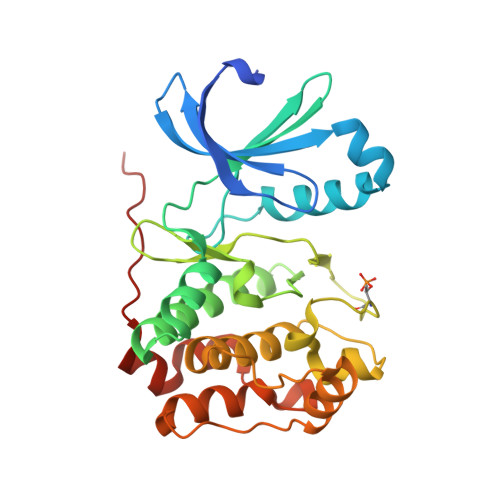Structure of Aurora B-Incenp in Complex with Barasertib Reveals a Potential Transinhibitory Mechanism
Sessa, F., Villa, F.(2014) Acta Crystallogr Sect F Struct Biol Cryst Commun 70: 294
- PubMed: 24598913
- DOI: https://doi.org/10.1107/S2053230X14002118
- Primary Citation of Related Structures:
4C2V, 4C2W - PubMed Abstract:
The Aurora family is a well conserved and well characterized group of serine-threonine kinases involved in the normal progression of mitosis. The deregulation of Aurora kinases impairs spindle assembly, checkpoint function and cell division. To date, many small molecules that compete with ATP for binding to Aurora kinases have been developed and characterized. Here, the first structure of the Xenopus laevis Aurora B-INCENP complex bound to the clinically relevant small molecule barasertib was determined. The binding properties of this inhibitor to the Aurora B active site are analyzed and reported. An unexpected crystal-packing contact in the Aurora B-INCENP structure coordinated by an ATP analogue is also reported, in which the INCENP C-terminus occupies the substrate-binding region, resembling the protein kinase A inhibitory mechanism.
Organizational Affiliation:
Department of Experimental Oncology, European Institute of Oncology, Via Adamello 16, 20139 Milan, Italy.

















